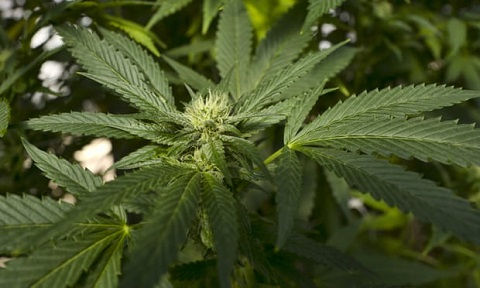Russia to Resume Cultivation of Medicinal Narcotic Plants
Import substitution in Russia has now reached medicinal plants containing narcotic substances. A new law has been passed lifting the ban on cultivating such plants within the country. The reason is straightforward: 9 out of 10 foreign companies producing opium-based medicines for medical use have imposed political sanctions against Russia.
Each year, up to 500,000 new cancer cases are diagnosed in Russia, and about 300,000 people die from cancer annually. Around 3 million people are registered at oncology clinics. A major problem for many of these patients is the inability to access pain-relieving medications. The new law offers hope that this issue can finally be addressed.
Global Practices and the New Russian Law
Many countries already cultivate narcotic-containing plants for medical purposes, including the USA, Canada, the UK, France, Australia, Germany, Belgium, the Netherlands, Switzerland, Spain, Italy, Croatia, Greece, Luxembourg, and Israel. Russia now joins this list.
The law, titled “On Narcotic Drugs and Psychotropic Substances Regarding the Improvement of the Procedure for Cultivating Narcotic-Containing Plants,” was introduced to the State Duma by the Health Protection Committee. According to committee member Alexander Petrov, “Of the 13 registered opium-based pharmaceutical drugs in Russia, nine are included in the list of essential and vital medicines.”
This initiative was largely driven by the government. Russia previously imported nearly 100% of the substances needed for painkillers containing narcotics, a process that was lengthy and complicated. Domestic cultivation will not only save on procurement costs but also allow for better quality control from the time of planting. “Growing narcotic-containing plants is crucial for ensuring our country’s pharmaceutical security,” says Denis Manturov, Russia’s Minister of Industry and Trade.
Research and Production Prospects
Currently, enterprises under the Ministry of Industry and Trade are developing medications based on opium substances. One such enterprise is the Moscow Endocrine Plant. According to their website, “The Moscow Endocrine Plant plans to conduct research on the properties of cannabinoid-containing drugs. If results confirm the pharmacotherapeutic advantages of cannabis-based medicines over traditional drugs, and if the Ministry of Health approves their use in medical practice (and after the necessary legislative changes), the plant will be ready to produce cannabis-based medicines,” states the company’s press service.
The Moscow Endocrine Plant may soon be authorized to develop drugs based on narcotic-containing plants. Today, cannabinoid-based medications are used in various countries to treat severe chronic diseases, epilepsy, multiple sclerosis, and to alleviate side effects of cancer therapy. Research is also underway on their effectiveness in treating Parkinson’s disease. Medical use of cannabinoid-containing drugs is now permitted in over 45 countries.
Legal and Regulatory Details
As blogger Maxim Malyavin notes, “The law mainly discussed opium poppy, but narcotic-containing plants were mentioned in general, without specifics. As of July 12, 2017, there are 11 such plants listed in Russia.” He also raises concerns about the law’s provision allowing not only state enterprises but also private entrepreneurs to cultivate these plants, questioning how effective oversight will be.
After the dissolution of the Federal Drug Control Service (FSKN), oversight of narcotic plant cultivation will likely fall to the Main Directorate for Drug Control (GUNK) under the Ministry of Internal Affairs. According to Oleg Zykov, MD and director of the National Institute for Narcological Health, “There is always a risk of theft, but in this case, it won’t significantly impact the illegal drug market. The plants grown will have low levels of narcotic components.”
Zykov adds, “GUNK will provide general oversight, while direct security will be handled by the National Guard and private security firms. The crops will be grown in secured areas. While there may be attempts at unauthorized access, the government’s serious approach should ensure adequate protection. As for cannabis, Russia could follow the Soviet model and organize planned cultivation. In Soviet times, there was an entire industry—hemp cultivation. The Red Army’s aviation used hemp oil, and paper was made from cannabis.”
Historical Context and Potential Risks
In the USSR, cannabis production was a major industry, with even honorary badges awarded for achievements in hemp cultivation. It’s possible that Soviet-era trends like the “Flax and Hemp” magazine and the “Excellence in Hemp Cultivation” badge could be revived.
A logical question arises: will cultivating narcotic-containing plants increase drug abuse in Russia? “According to our data, only a negligible amount of medical drugs end up on the black market. However, the now-defunct FSKN used to blow every suspicious case out of proportion, often leading to criminal charges. For example, a doctor in Krasnodar was prosecuted for prescribing painkillers to a cancer patient outside her district, though she was later acquitted. There was also the infamous ‘poppy case,’ where FSKN banned bakers from using poppy seeds even after customs clearance, leading to criminal cases against bakers and an expert who testified that opium couldn’t be extracted from baked goods. Six people were convicted, while little was done to prevent drug addiction or help at-risk groups. Meanwhile, thousands of cancer patients suffered unbearable pain,” says Oleg Zykov.
Experts agree that the problem lies not in the chemicals themselves, but in people’s attitudes toward them. “Drug use is a personal choice. We should be more concerned about the lack of effective drug prevention, the difficulty of getting help for addicts, and the absence of work with at-risk groups,” Zykov concludes. While there are certain risks in cultivating narcotic-containing plants, from a human rights perspective, it is far more humane to help a cancer patient in pain than to focus solely on preventing potential drug abuse.



